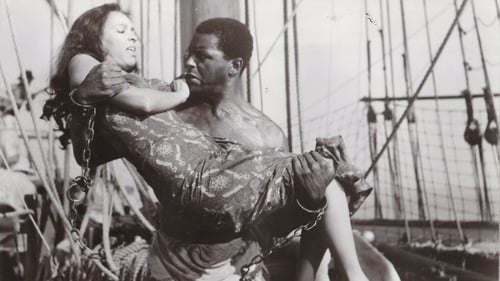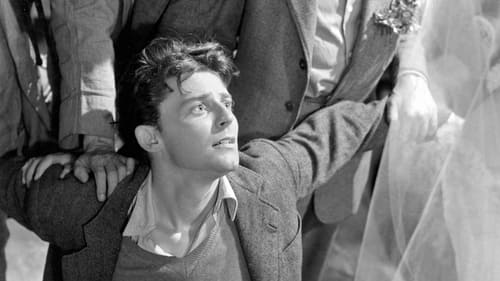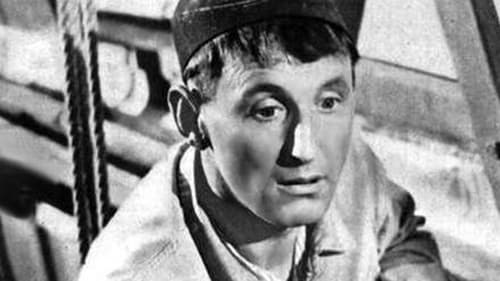
Georges Neveux
출생 : 1900-08-26, Poltava, Russian Empire
사망 : 1982-08-27
약력
From Wikipedia
Georges Neveux (1900-1982) was a French dramatist and poet.
Neveux's first notable work was the play Juliette ou la clé des songes (Juliet or the key to dreams), written in 1927 and produced in 1930. It became the basis of Theodor Schaefer's melodrama Julie aneb Snar (Julie or the Book of Dreams) for piano, jazz instruments, and small orchestra, from 1934, Bohuslav Martinů's opera, Julietta, from 1937, and for the 1951 film Juliette, or Key of Dreams.
During the 1930s, when he was general secretary of the Théâtre des Champs-Élysées, he wrote little. In 1943 appeared Le Voyage de Thésée (The Voyage of Theseus), which was also later adapted by Martinů as an opera (Ariane, 1958). In 1945 he translated and adapted Shakespeare's A Midsummer Night's Dream.
Neveux also wrote numerous filmscripts, although he greatly preferred the theatre; as he said, 'the first because one must earn a living, the second because one must deserve to live'.

Writer
Tsar Alexandre II meets a young student, Katia. He understands that he loves her and try to send her away but they end up seeing each other again and becomes his mistress. With the help of Katia, Alexandre prepares a liberal constitution, but these reforms make him hostile to the more privileged subjects without satirising the revolutionaries against the regime.

Dialogue
A Dutch slave captain, on a voyage to Cuba, faces a revolt fomented by a newly captured African slave, Tamango. The slaves capture the captain's mistress, forcing a showdown.

Writer
Madame de Montespan, the Maîtresse-en-titre of Louis XIV, has been in disgrace since the King set eyes on a younger beauty, Marie-Angélique Scorailles. Having had enough of the situation, the rejected mistress decides to visit La Voisin, a woman known as a fortune teller, a doctor, a midwife and who is also said to arrange black masses and sell poisons. Some time later Marie-Angélique, now Duchess of Fontanges, dies mysteriously aged only twenty...

Dialogue
Marcel, rich and alone for Christmas, invite Françoise to celebrate whim him. Soon, the fairy tale turns into a bad dream.

Writer
Michel has stolen from his employer, Mr Bellanger, for the love of Juliette. He is now in jail. One night, while sleeping in his cell, he wakes up all of a sudden, the gates open and he finds himself in a strange village where all the inhabitants have lost their memory. There, meets Juliette again who seems to agree to marry a powerful man, who might well be Bluebeard...

Dialogue
Michel has stolen from his employer, Mr Bellanger, for the love of Juliette. He is now in jail. One night, while sleeping in his cell, he wakes up all of a sudden, the gates open and he finds himself in a strange village where all the inhabitants have lost their memory. There, meets Juliette again who seems to agree to marry a powerful man, who might well be Bluebeard...

Writer
Director Jean Delannoy's immediate followup to his brilliant Les Jeux sont Faits was the more conventional Aux Yeux du Souvenir (aka Souvenir and To the Eyes of Memory). The film is based on a true story, wherein an France airliner managed to survive a journey from Rio De Janeiro to Dakar with two of its engines incapacitated. To this already intensely dramatic situation has been added a romantic subplot involving Claire Magny (Michele Morgan) and Jacques Forester (Jean Marais). The love story adds very little to the film; fortunately, neither does it detract from the film's overall quality. As was the case with many French productions of the 1940s, Aux Yeux du Souvenir benefits immeasurably from the Wagnerian musical score by Georges Auric.

Writer
Gaston, nicknamed Pilou, has left his native village and Yvette, the girl of his heart, to go to Paris where he has found work as a painter. He is a naive good-natured man who, like most of his fellow-workers, favors a little song or two while he works. For the time being he is busy repainting the exterior of a block of flats and, when he does not sing to pass the time, he looks through the windows, observing the tenants in their daily lives. As time goes by, he goes as far as intervening and changing the course of their lives. In the end, despite having found a lookalike of his fiancée, he returns to her.

Screenplay
A stranger named Constant disrupts the life of Flora, who is seemingly happy with her husband Lucien. But she suddenly experiences a passionate love, taking refuge with Constant in a cave they call “home under the sea.”

Writer
Lucrèce, a famous actress, is bothered first, then flattered by the passionate testimonies of love given to her by François, a 12th grade student infatuated with her. Taking pity on the boy, Lucrèce decides to heal him of his madness and with this in mind she invites him for a working holiday on her farm. Instead, she falls in love with the cherub. At a time, her young lover grows so jealous of her that he attempts suicide. The mature actress then understands that their love story is going nowhere. She will remain alone while François will forget her.

Writer
By mutual agreement, a man and a woman are separated to allow the wife to join her lover.

Dialogue
A French-language remake of Douglas Sirk's "The Court Concert" (1936).

Director
A love between a teacher and his assistant is thwarted, because of their too great age difference.

Writer
A slippery femme fatale, a spy for Germany during the Great War, is sent to Thessaloniki in Greece and becomes involved with a man on the other side, a French military officer.

Dialogue

Dialogue

Adaptation
From Constantinople to Marseilles, aboard a cargo ship, an intrigue full of adventures brings together a courageous young girl and a young risk-taker who succeeds in thwarting a series of long-planned crimes.

Dialogue
From Constantinople to Marseilles, aboard a cargo ship, an intrigue full of adventures brings together a courageous young girl and a young risk-taker who succeeds in thwarting a series of long-planned crimes.

Writer
"Everybody is ill: you just don't know it yet". Knock, a newly arrived physician takes over a small town through fear and authority. NB : this is a different movie from the 1951 version where Louis Jouvet also plays Dr Knock.

Writer

Dialogue Coach

Screenplay
A bank employee who stole money at work falls in the hands of a dangerous escaped convict whose girlfriend is going to help him out of this mess.




